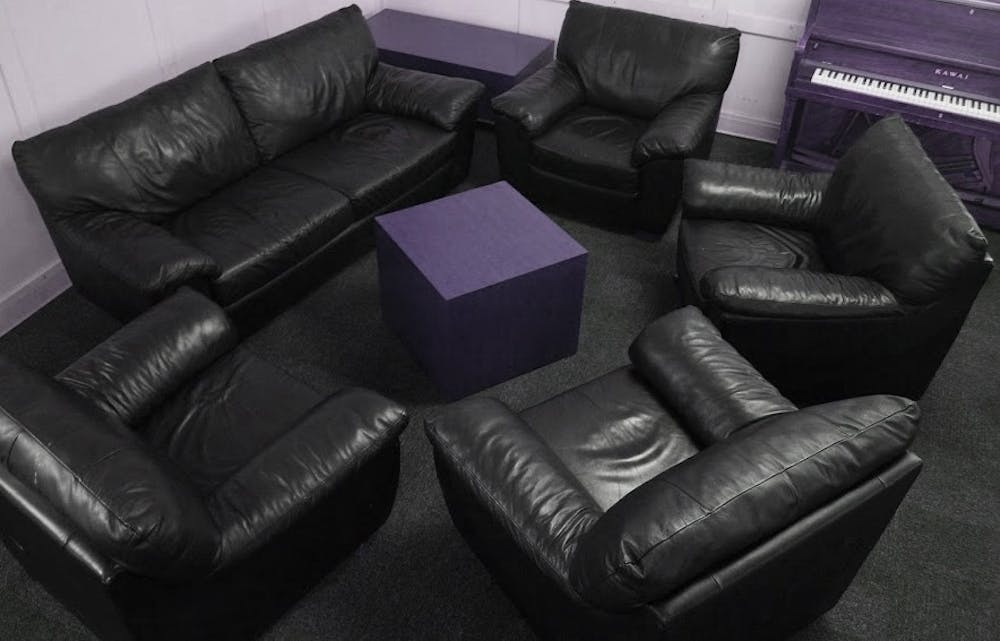by Jacob Fuhrer |
If your roommates are done listening to you stress about that statistics test tomorrow or about how much you miss your parents back home, the Health Center wants to help. The center will soon offer students a chance to discuss their struggles with one another in hopes that they can overcome problems by working together.
Will Meek, interim director of counseling and training at the Health Center, says there are benefits to talking about problems in groups.
“In individual therapy, it’s one thing to be sharing a concern you might have,” Meek said. “It’s another thing to really experience it by sharing it with a bunch of people going through other things.”
Transitioning from high school to college or from college to a career field can be an anxiety-ridden experience, filled with uncertainty and unfamiliarity. That’s one area group therapy hopes to address.
Additionally Meek says the center is looking at creating groups for trauma survivors, students with eating disorders, stress and anxiety sufferers, as well as a group for men on campus to discuss their unique struggles together. Students are also encouraged to suggest their own ideas for support groups they would like to see.
The new counseling options are a response to greater mental health problems among college students, an issue that was brought into the spotlight after the death of UP student Michael Eberitzsch II last year, according to Meek.
“I think we’re seeing an increase in need in general – that’s for sure,” Meek said.
According to a study by the American College Health Association released in 2013, 84 percent of students reported feeling overwhelmed by all they had to do and over half reported suffering intense anxiety within the last 12 months.
The decision to add counseling was partly a result of lobbying by Active Minds, a newly formed group on campus that advocates for mental health awareness and connects the community with professional resources.
“We had a couple of meetings with Will [Meek] and some other Health Center counselors, and we brought this up pretty much every occasion,” senior Jesse Dunn, co-president of Active Minds said. “It’s been really clear they [students] always wanted to do something like this.”
Active Minds Co-President Logan Crabtree said the desire for this new form of mental help had been bubbling below the surface all along.
“There was already that idea and that drive behind it before we we’re even at the table,” Crabtree said. “It’s an issue of the student body reaching out and really wanting these.”
One hesitation students may have is speaking about personal issues in front of people they might see in class the next day. Meek says this likely won’t be an issue. The groups will be small, ideally six to eight people, and the expectation is participants will hold the conversations confidentially.
For Dunn, the key is encouraging students to participate in campus dialogue. “One huge thing for us is to make sure that people continue to have these conversations…it’s so important that students recognize that they’re willing to take on the mission themselves and keep the mission going,” Dunn said.
Jacob Fuhrer is a reporter for The Beacon. He can be reached at fuhrer17@up.edu or on Twitter @JacobFuhrer








